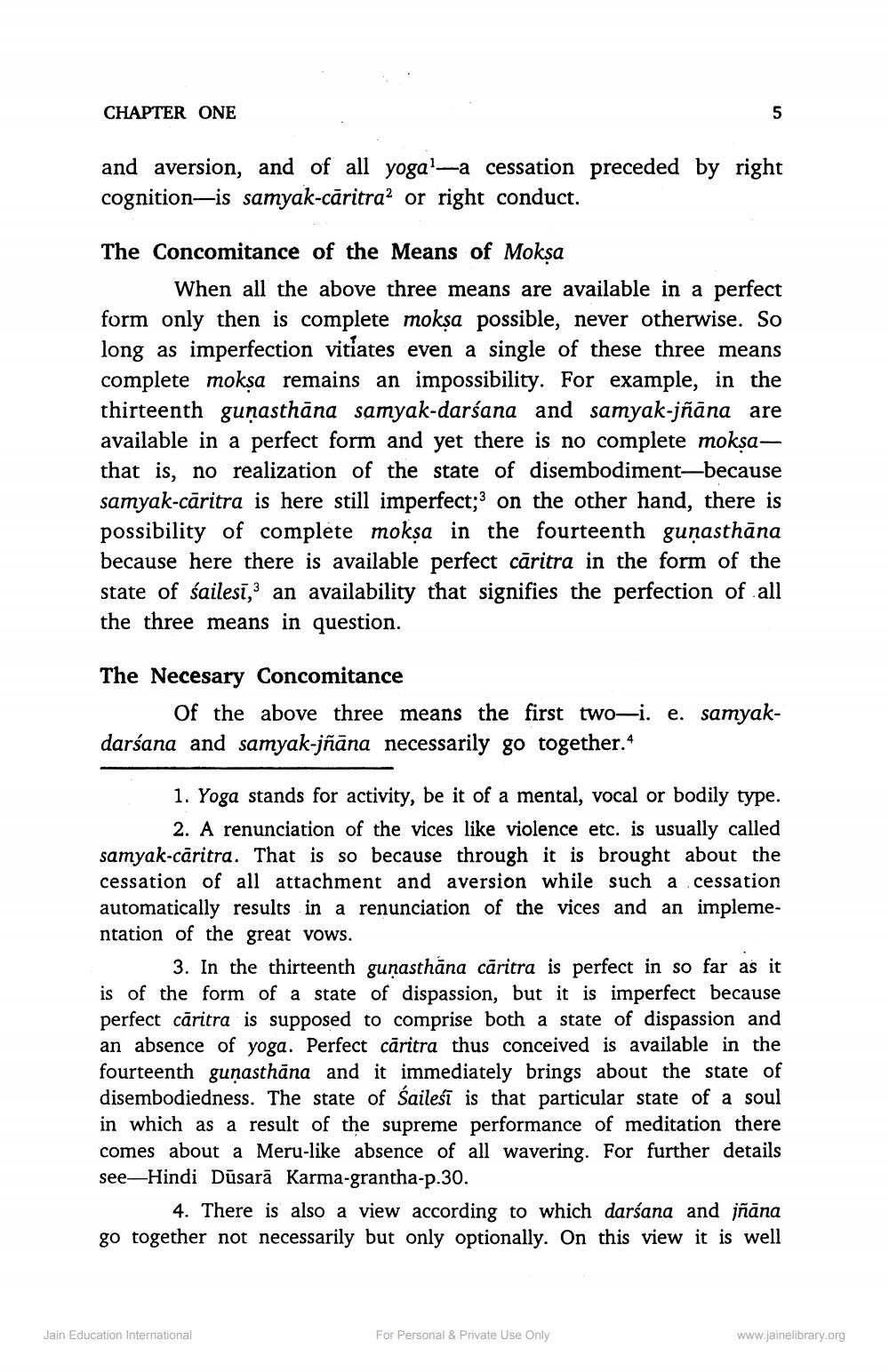________________
CHAPTER ONE
and aversion, and of all yoga!-a cessation preceded by right cognition—is samyak-cāritra? or right conduct.
The Concomitance of the Means of Mokşa
When all the above three means are available in a perfect form only then is complete mokṣa possible, never otherwise. So long as imperfection vitiates even a single of these three means complete moksa remains an impossibility. For example, in the thirteenth gumasthāna samyak-darśana and samyak-jñāna are available in a perfect form and yet there is no complete mokşathat is, no realization of the state of disembodiment–because samyak-cāritra is here still imperfect;3 on the other hand, there is possibility of complete mokṣa in the fourteenth guṇasthāna because here there is available perfect cāritra in the form of the state of śailesī, an availability that signifies the perfection of all the three means in question.
The Necesary Concomitance
Of the above three means the first two-i. e. samyakdarśana and samyak-jñāna necessarily go together.
1. Yoga stands for activity, be it of a mental, vocal or bodily type.
2. A renunciation of the vices like violence etc. is usually called samyak-caritra. That is so because through it is brought about the cessation of all attachment and aversion while such a cessation automatically results in a renunciation of the vices and an implementation of the great vows.
3. In the thirteenth gunasthāna cāritra is perfect in so far as it is of the form of a state of dispassion, but it is imperfect because perfect caritra is supposed to comprise both a state of dispassion and an absence of yoga. Perfect caritra thus conceived is available in the fourteenth gunasthāna and it immediately brings about the state of disembodiedness. The state of Sailesi is that particular state of a soul in which as a result of the supreme performance of meditation there comes about a Meru-like absence of all wavering. For further details see-Hindi Dūsarā Karma-grantha-p.30.
4. There is also a view according to which darśana and jñāna go together not necessarily but only optionally. On this view it is well
Jain Education International
For Personal & Private Use Only
www.jainelibrary.org




